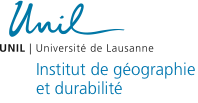Institute of Geography and Sustainability of the University of Lausanne
Research projects
The politics of sustaining tuna, fisheries and livelihoods in the Western Indian Ocean. A marine political ecology perspective
| Research fields |
Political ecologies |
| Keywords |
Tuna Fisheries Access Regional identity Knowledge production Political ecology |
| Funding | Institute of geography and sustainability |
| Duration | Juin 2015 - July 2020 |
| Website | https://serval.unil.ch/fr/notice/serval:BIB_7E0D668DF275 |
| Researchers |
Kull Christian (Supervision) [web] [email] Andriamahefazafy Mialy Zanah (Doctoral student) |
This thesis aims to expand knowledge regarding the socio-economic and political aspects of the western Indian Ocean (WIO) tuna fisheries at different levels - local, national, regional. The thesis was written at a time when ocean-based activities are high on the agenda of governments and other stakeholders in a wave of interests for the blue economy, including in Africa and in the Indian Ocean. With increasing signs of collapse of some tuna stocks in the WIO, the thesis unveils the complexities of managing fishing activities of a highly valuable and mobile marine species such as tuna. To this end, the research answers the question: How do socio-economic and political processes shape the management of tuna fisheries in the Western Indian Ocean? To respond to this question, I will look at three aspects: narratives around the state of tuna resources, access politics and regionalism.
A political ecology approach is used for the research. Political ecology as a field of study pays particular attention to politics in its attempt to understand human-environment interactions. The study focuses on three countries in the WIO: Madagascar, Mauritius and the Seychelles. These countries were used to build a regional perspective. The thesis is based on empirical data collection and analysis, notably of documents regarding the fisheries, semi-structured interviews, and observations of fishing activities, landing at ports and decision-making during regional meetings.
The thesis makes three main arguments. Regarding the state of tuna resources, the thesis demonstrates that local fishers have developed strong discursive claims that they use to contest exploitation by industrial actors. Industrial actors, on the other hand, perceive themselves as unjustly accused of being the main responsible for overfishing in the region. In the case of tuna fisheries in the WIO, discursive power is not only exercised by usual powerful actors; small-scale fishers have built over the years a powerful narrative of tuna being overfished, with the support of actors such as NGOs and the media.
As for access politics, the thesis highlights that while rights-based mechanisms set the foundations for the possibility of equal access to the fish through various legal arrangements, structural mechanisms present a clear picture of unbalanced and unequal access between the various actors of the fishery. These power relations and conflicts are aggravated by the materiality of the tuna resources and the western Indian Ocean. The thesis also argues that local and national stakeholders in the fishery are at different times and spaces both winners and losers; the foreign industrial actors are consistent winners; and the fish - or its sustainability - a consistent loser.
With respect to regionalism, the thesis unravels the importance of both local socio-economic contexts, geopolitical interactions and their role in advancing or not regional cooperation and identity. It also shows that capitalist exploitation of the resources involving geopolitical actors strongly influences regional management and use of the resources. For regionalism to truly exist in the WIO, building stronger links between countries, the WIO people and through tuna fisheries is essential.
For the WIO countries to continue to benefit from tuna fisheries, three action points are needed: take management measures that prioritise the long-term sustainability of tuna instead of political and economic interests; assess the impact of various types of tuna fisheries on livelihoods, food security and the state of resources; and promote regional initiatives that highlight the shared socio-economic and cultural values of tuna in the WIO region.
